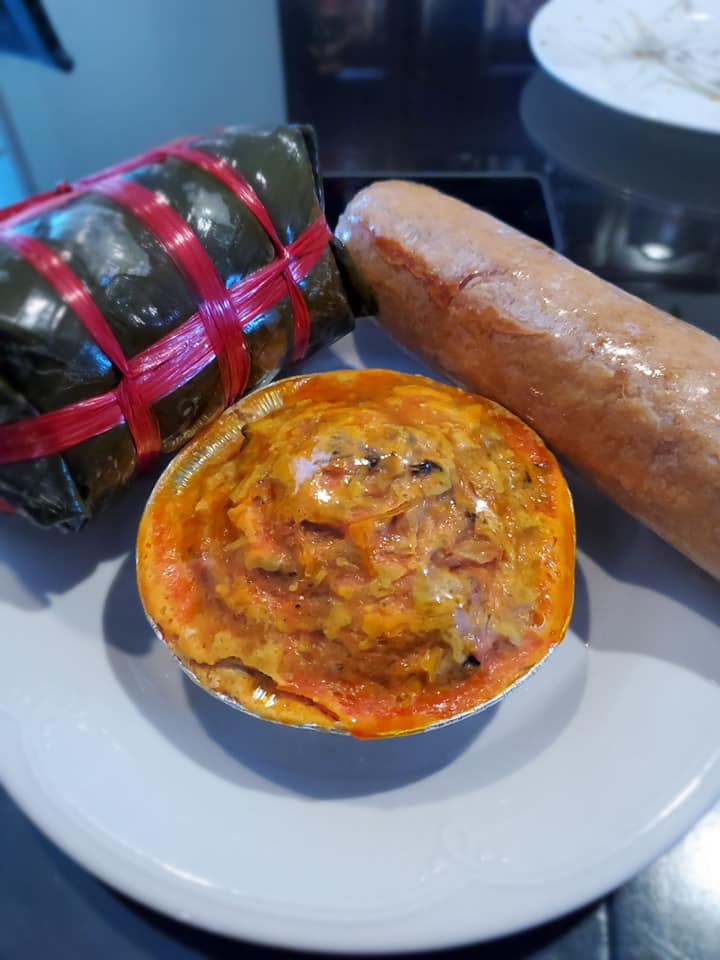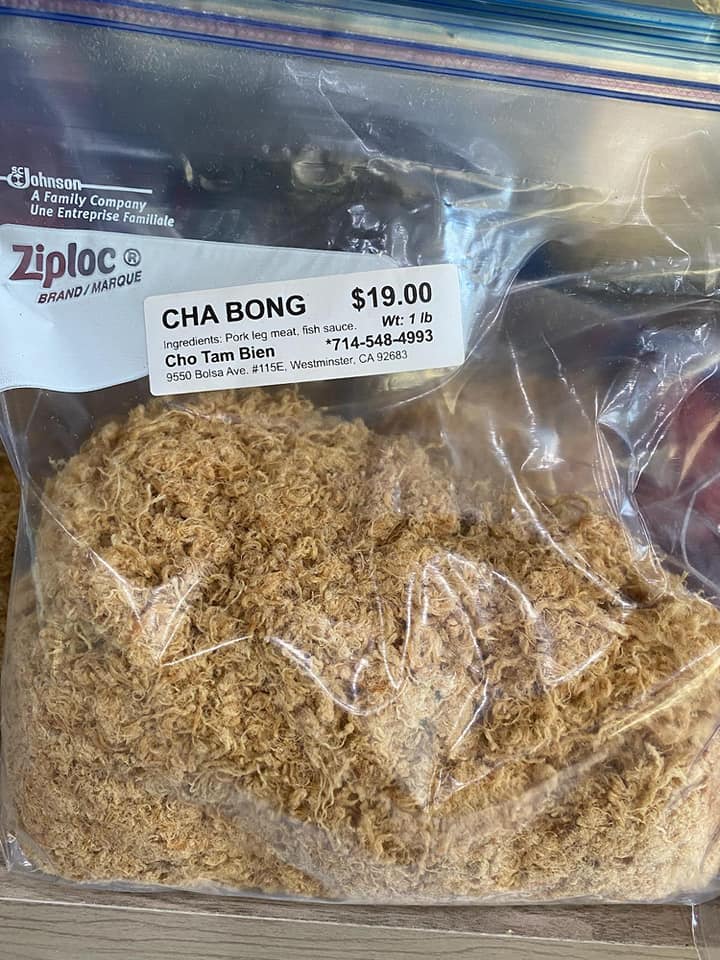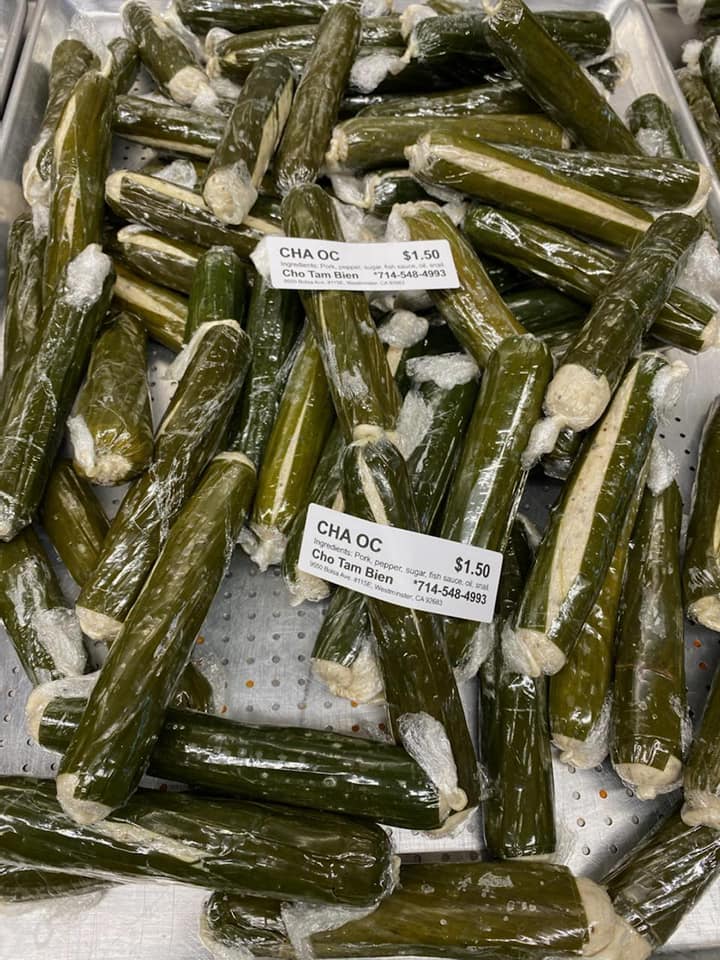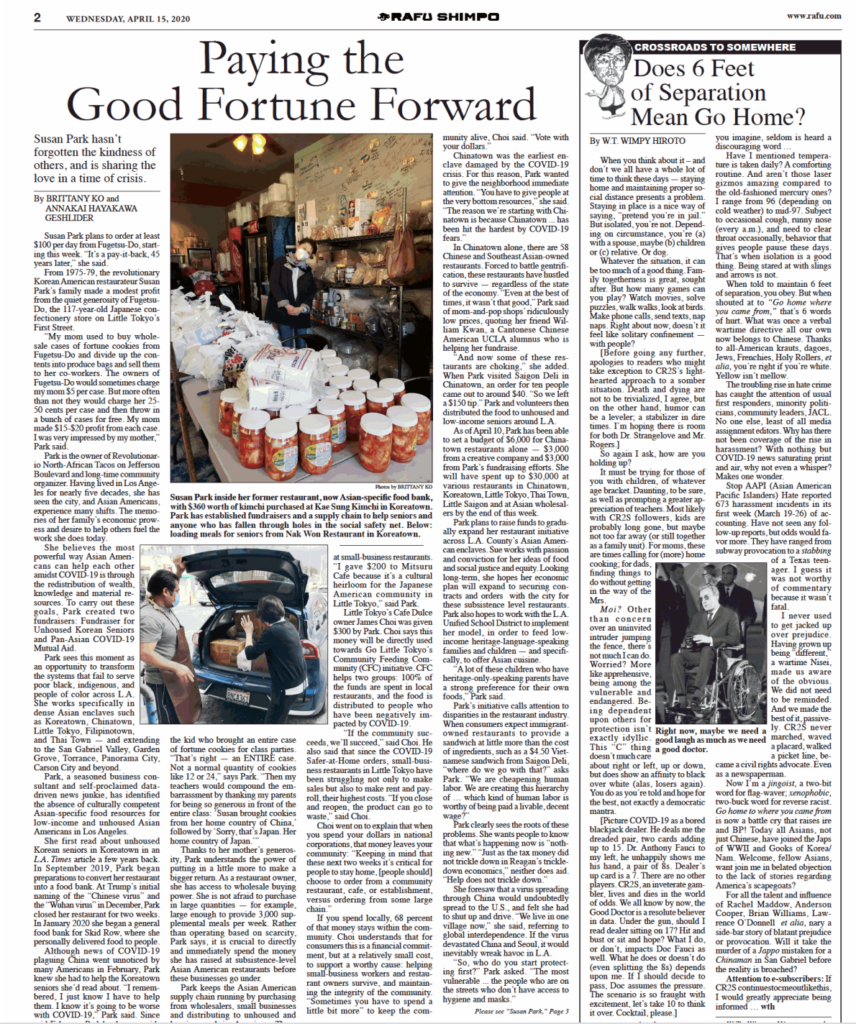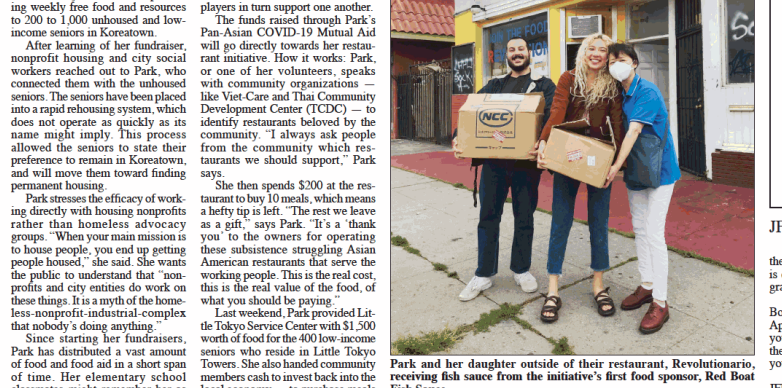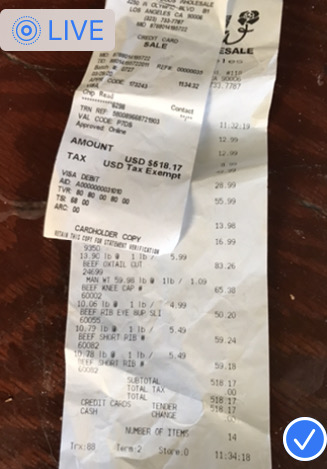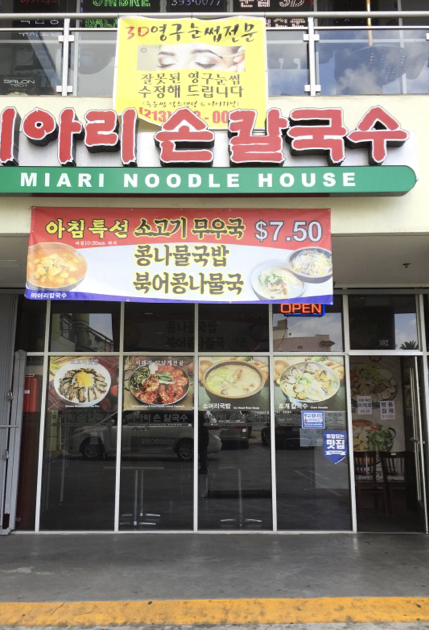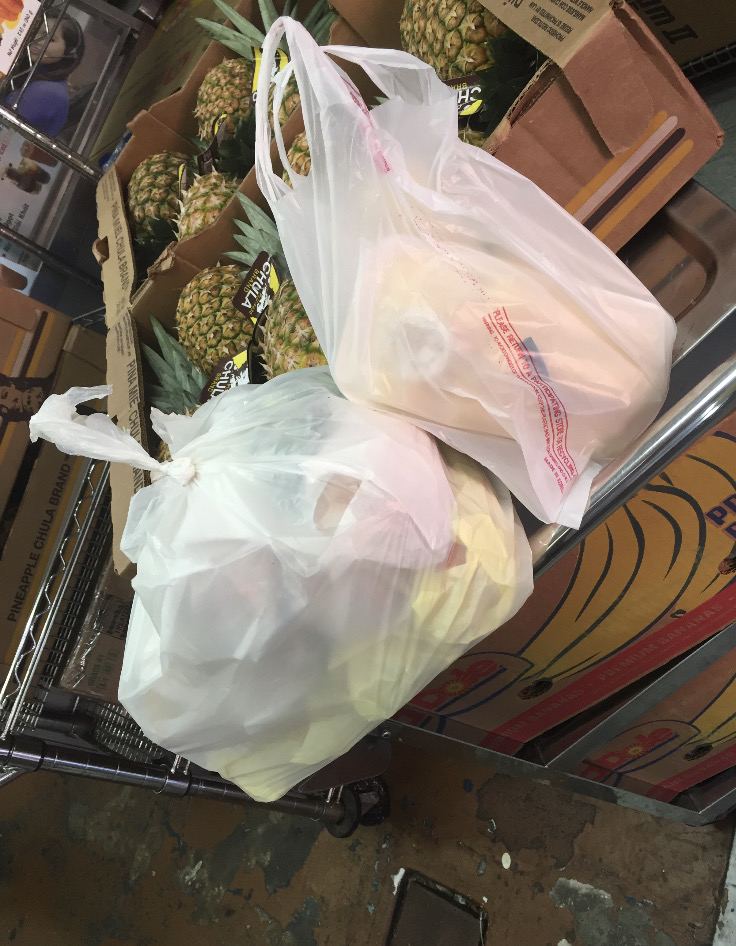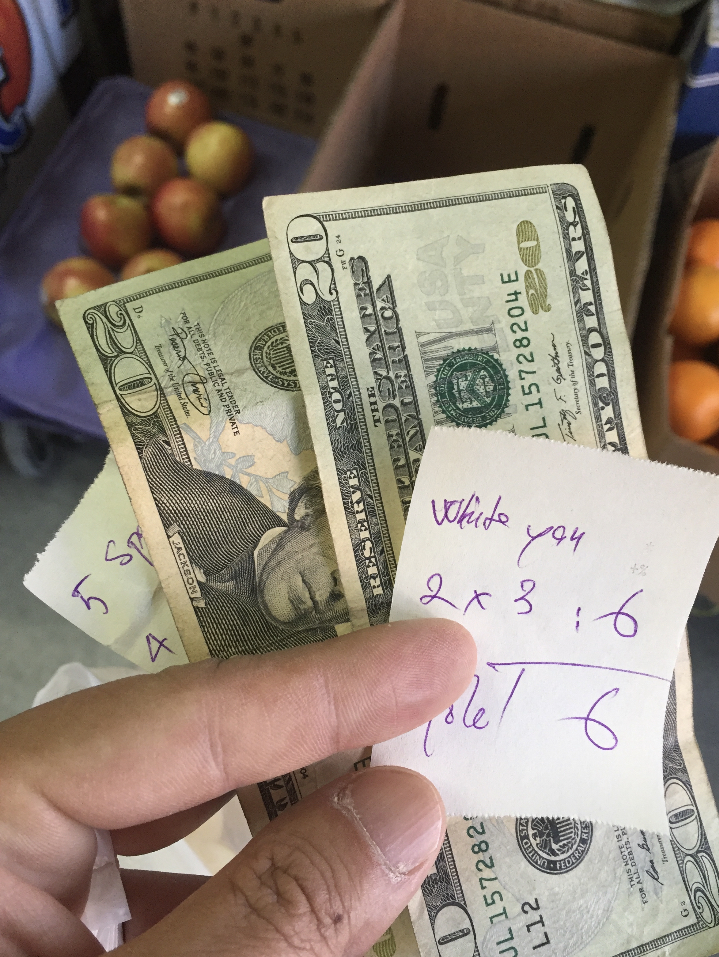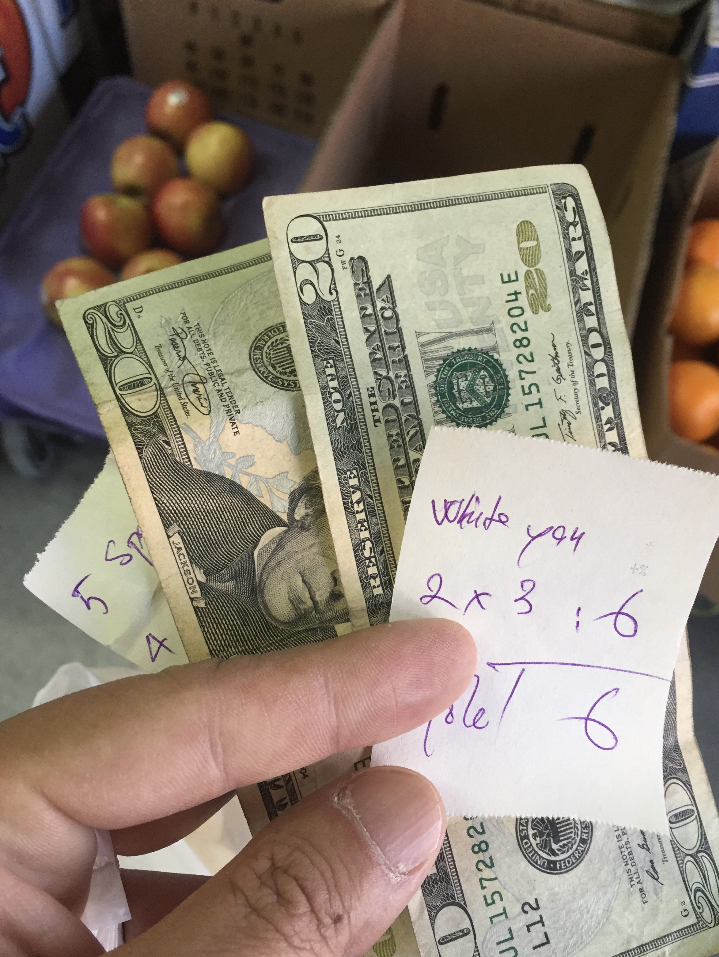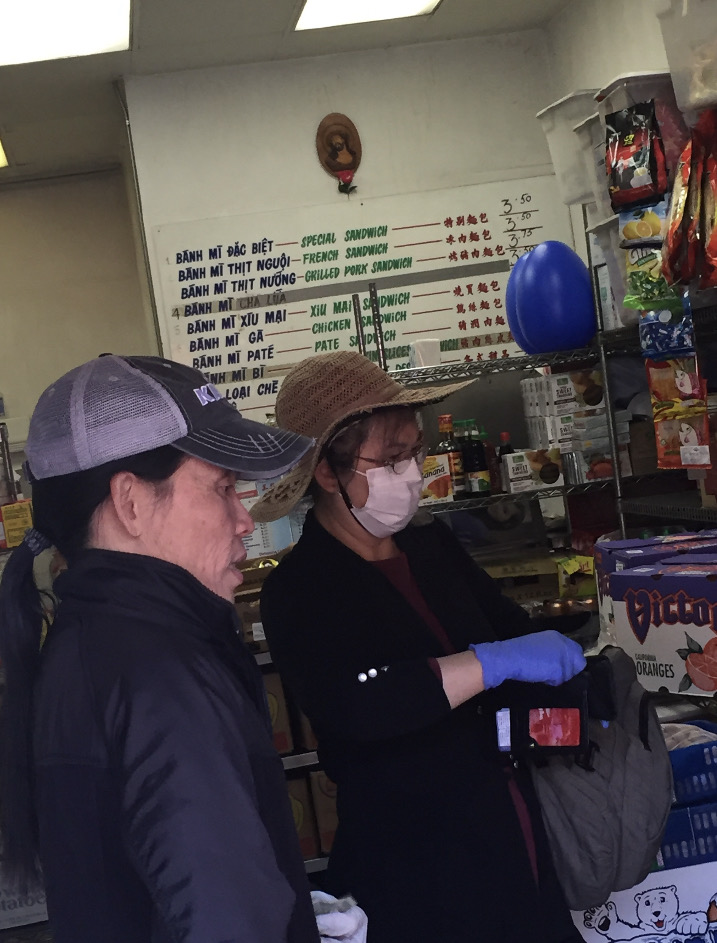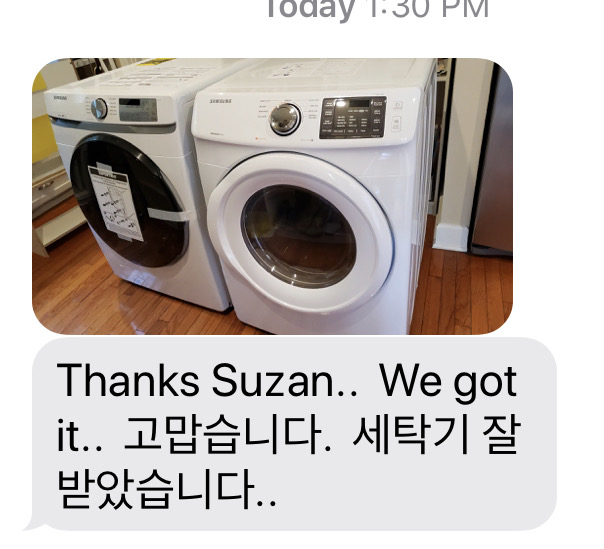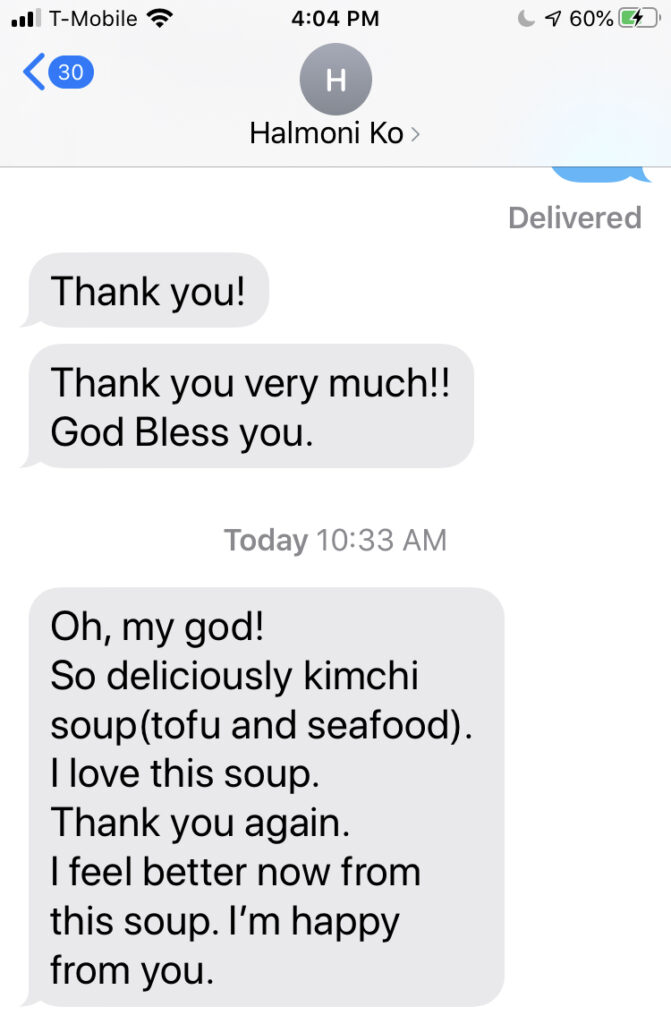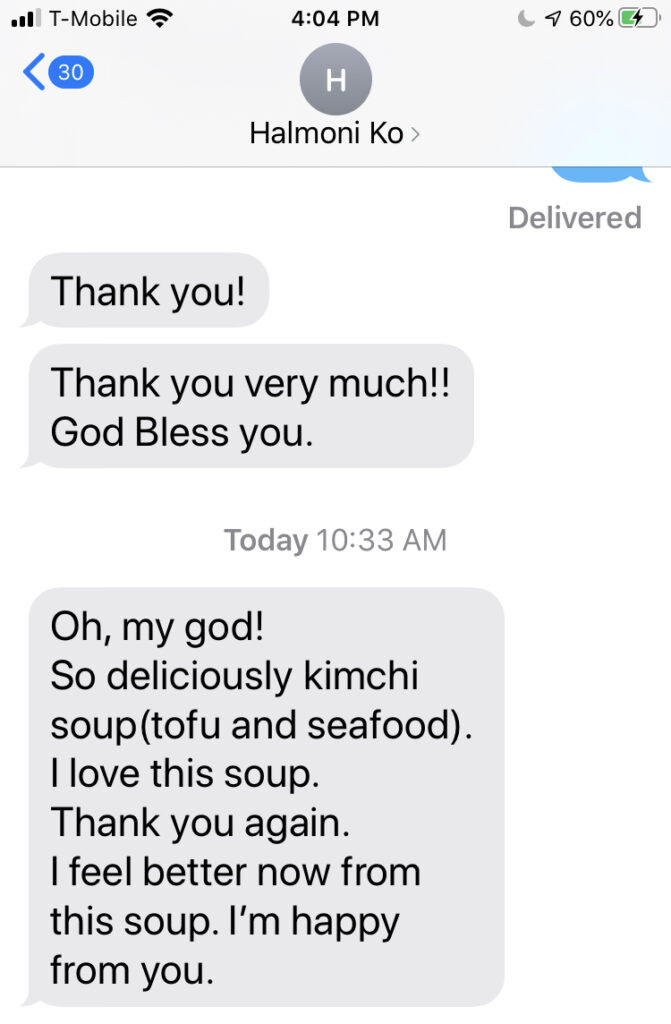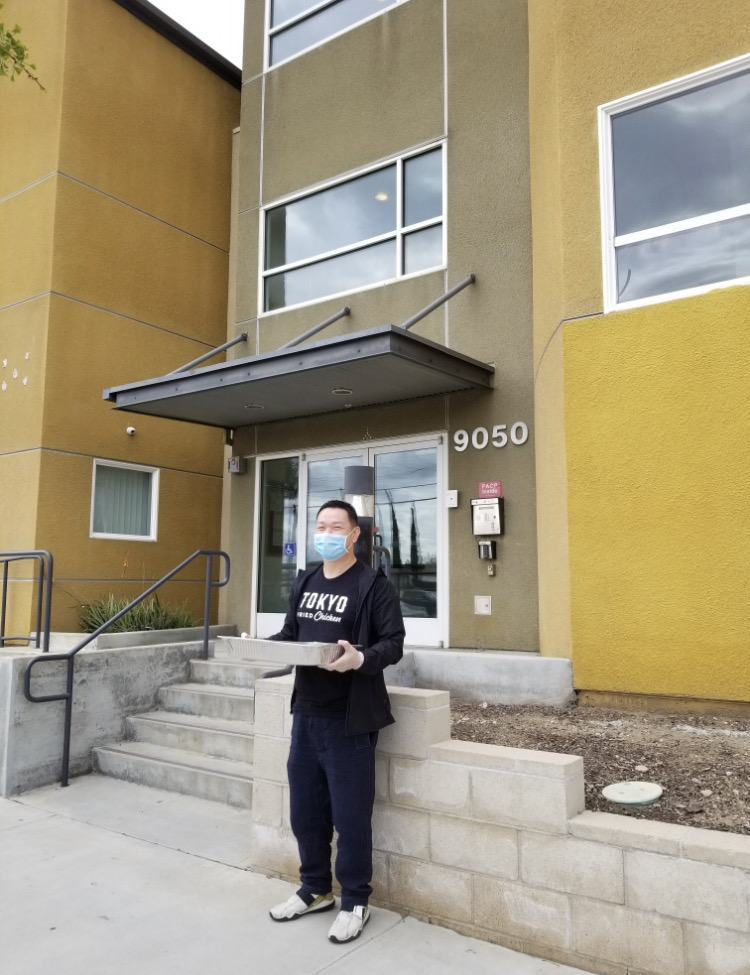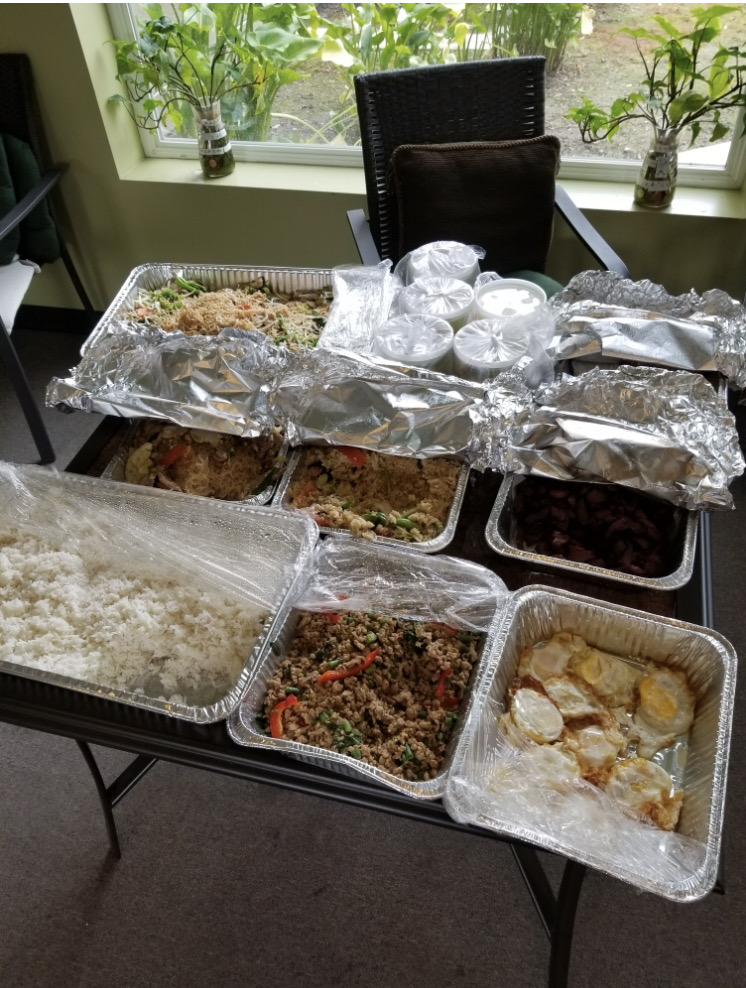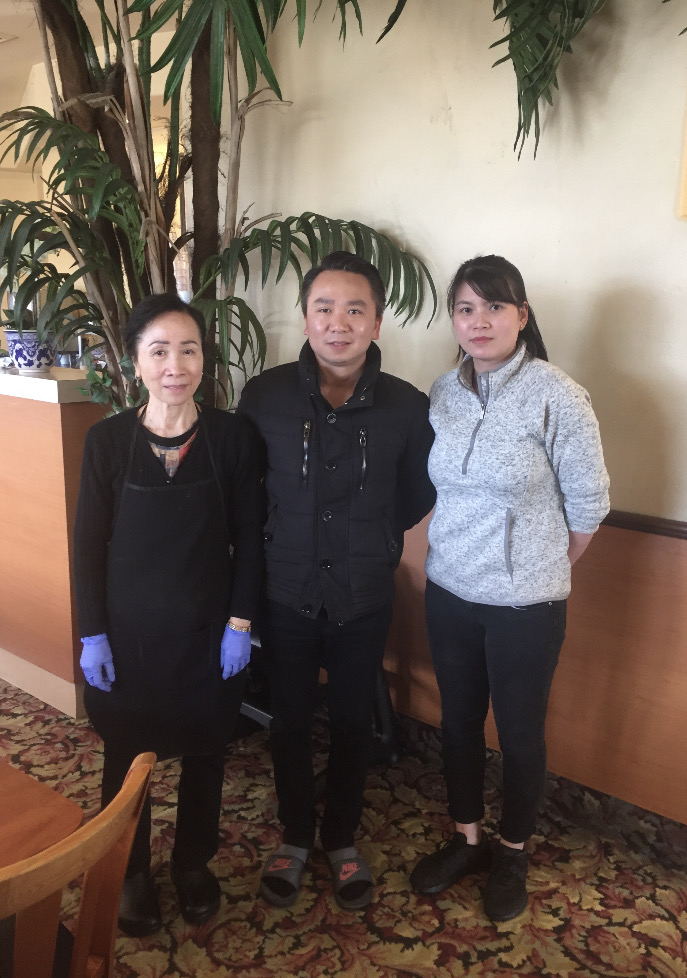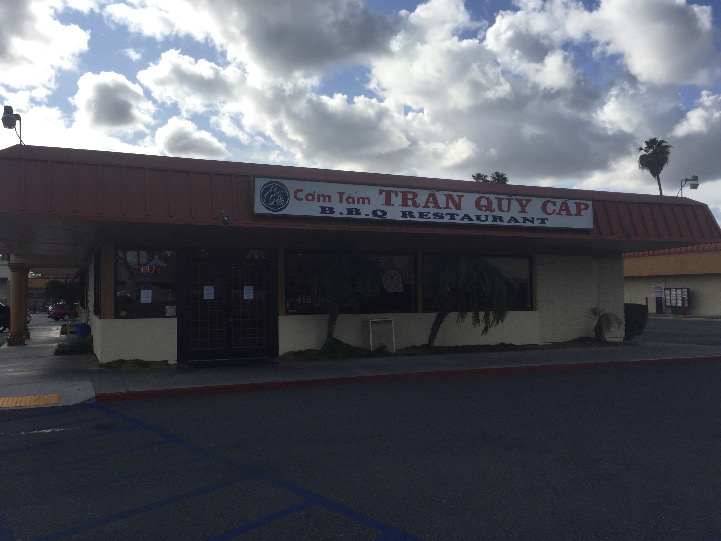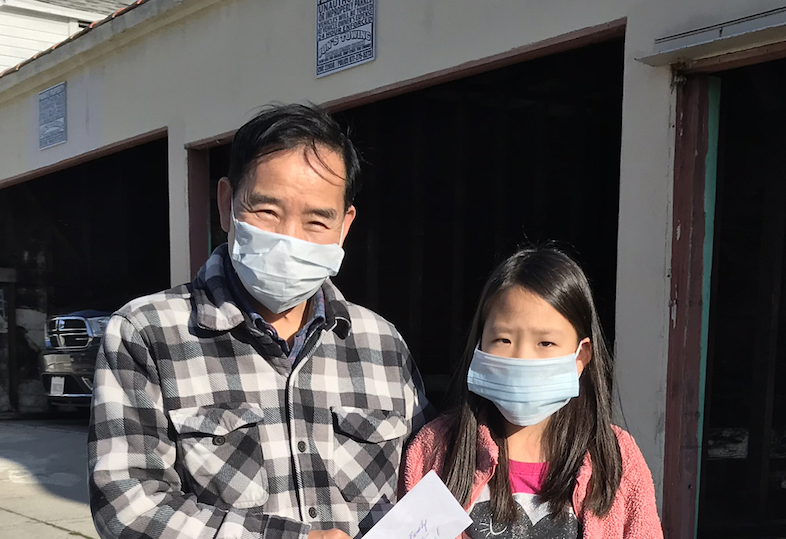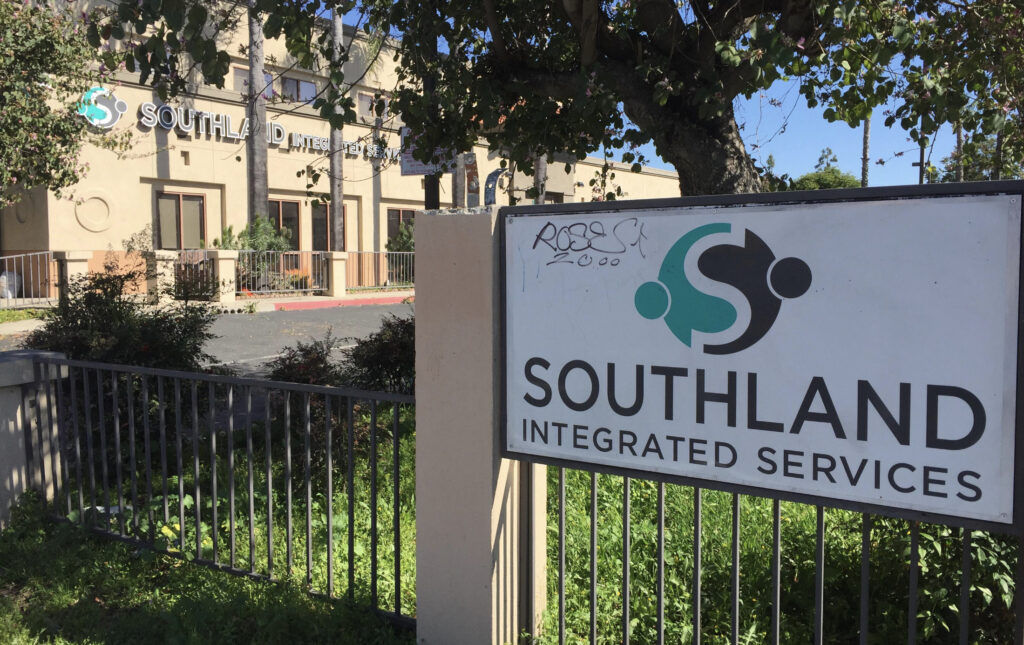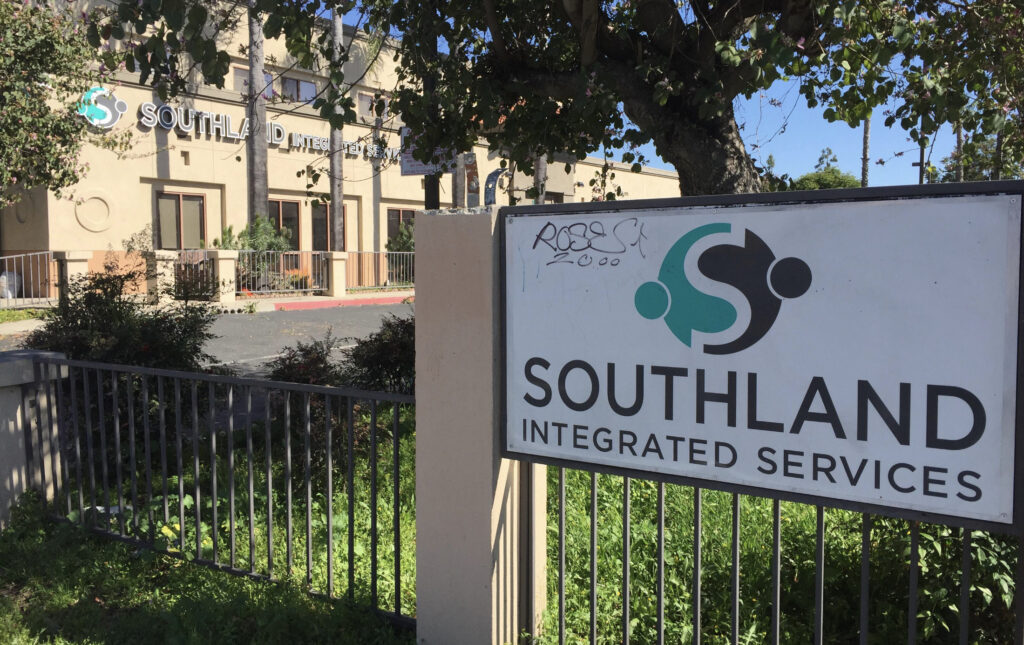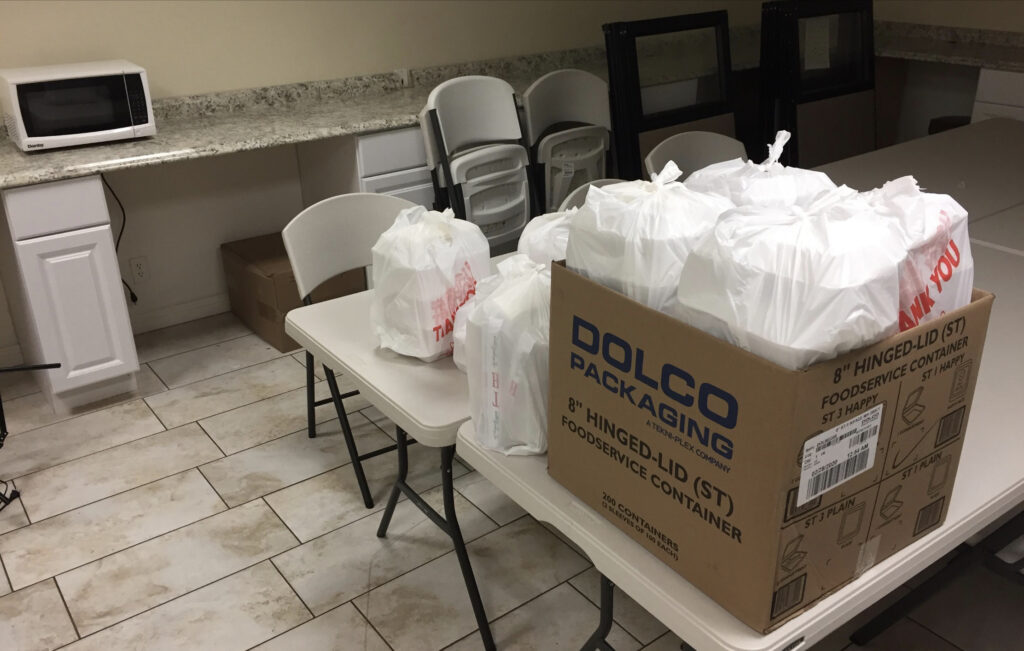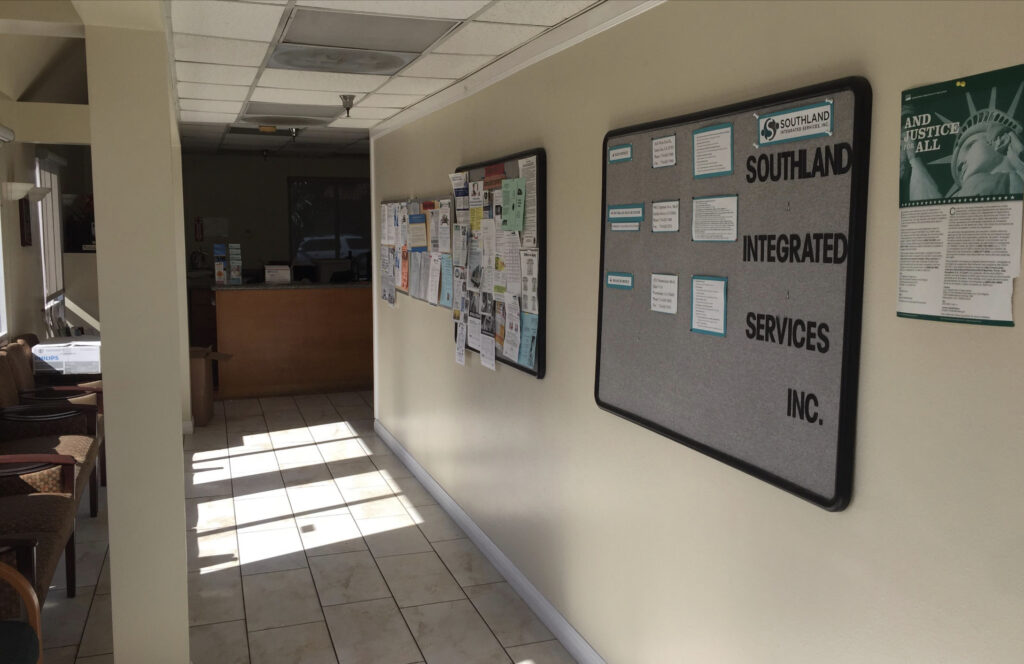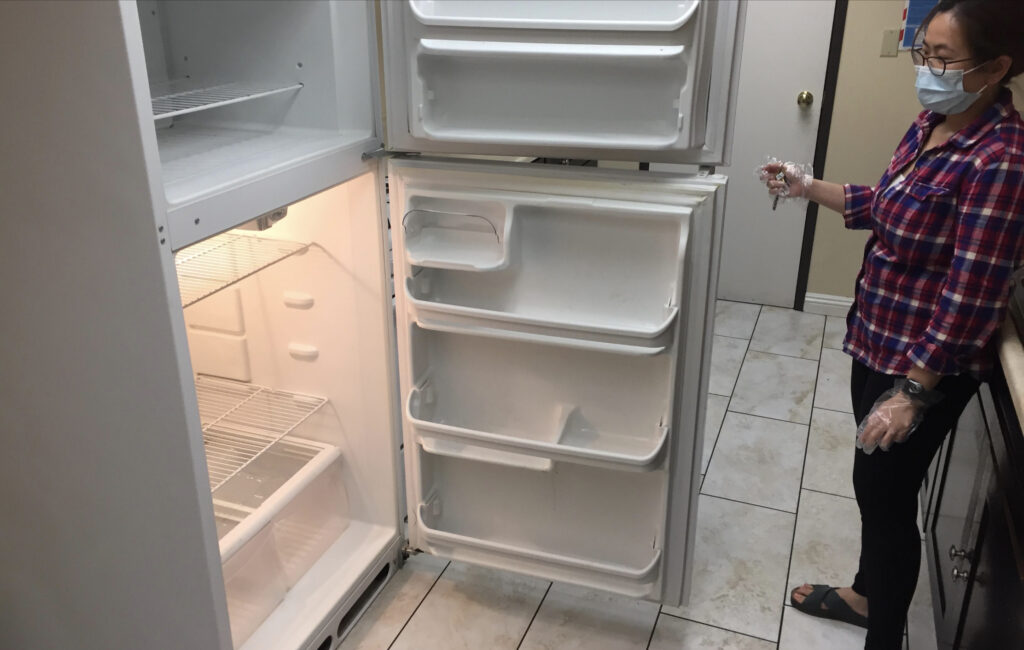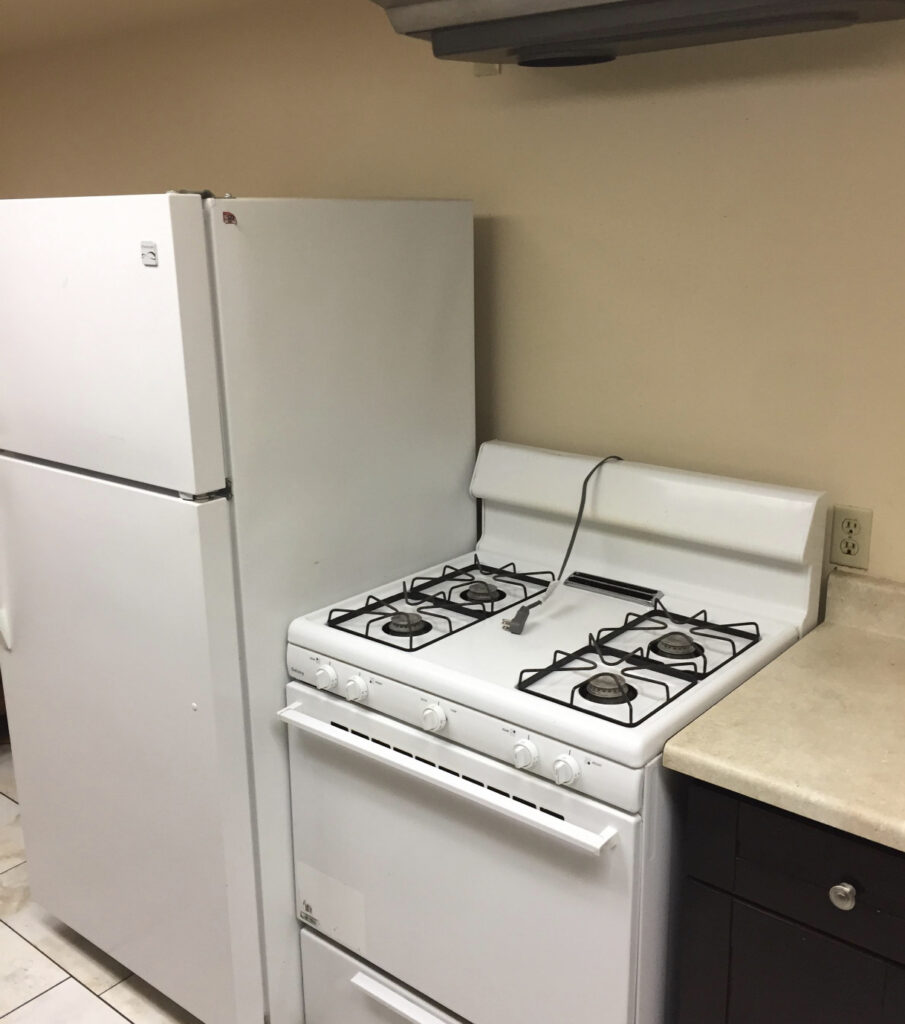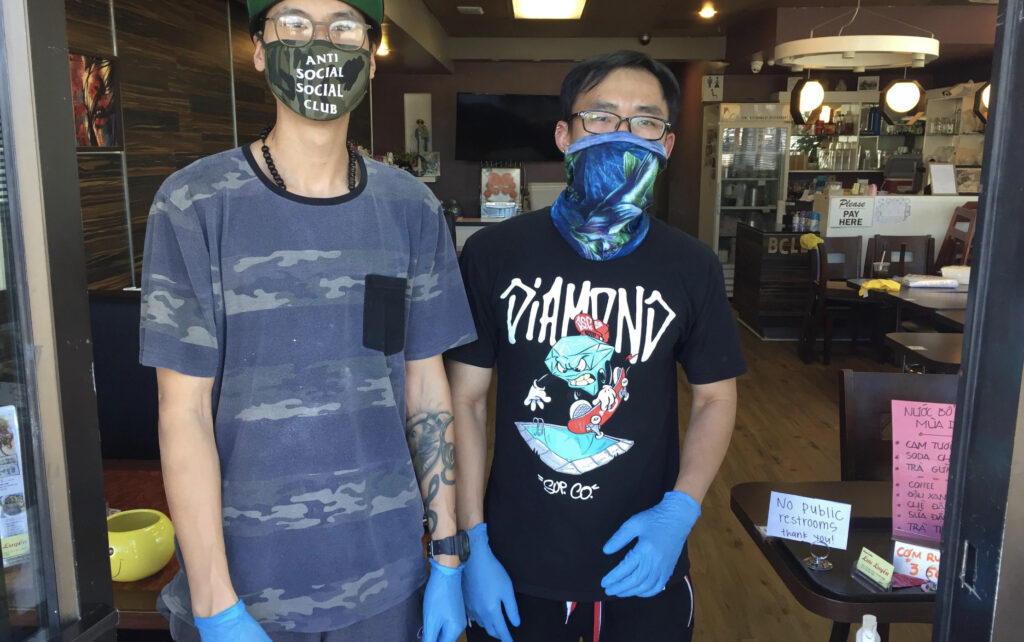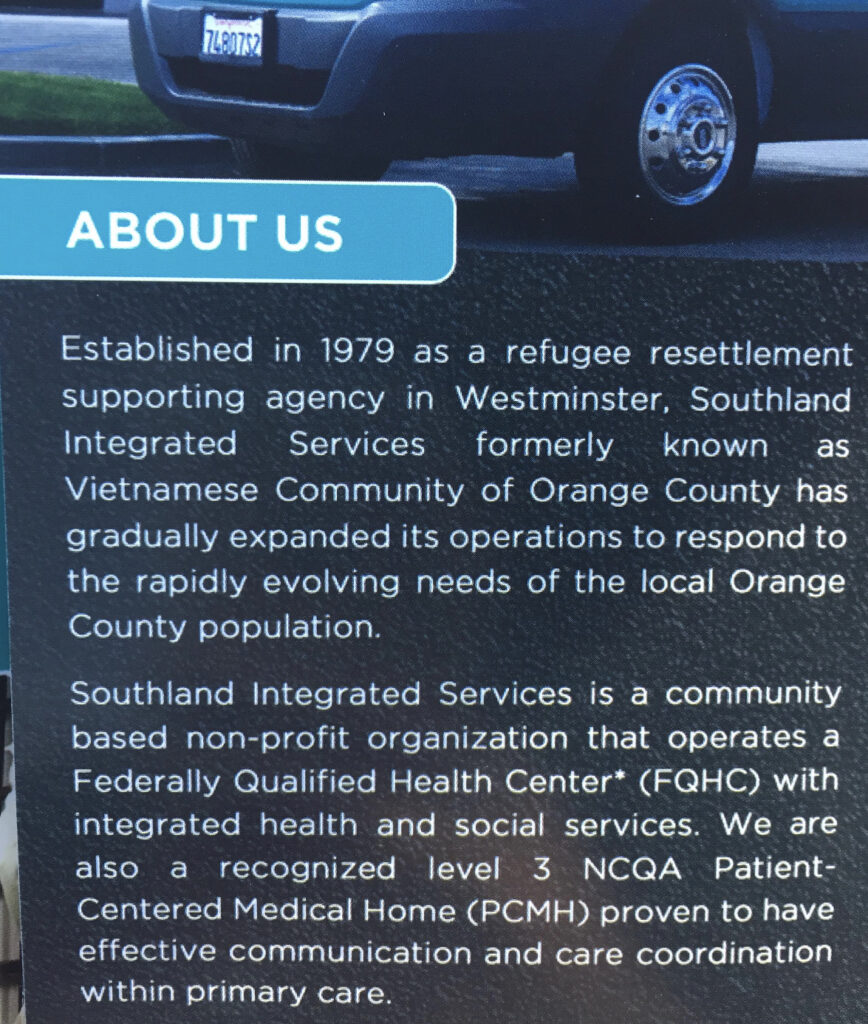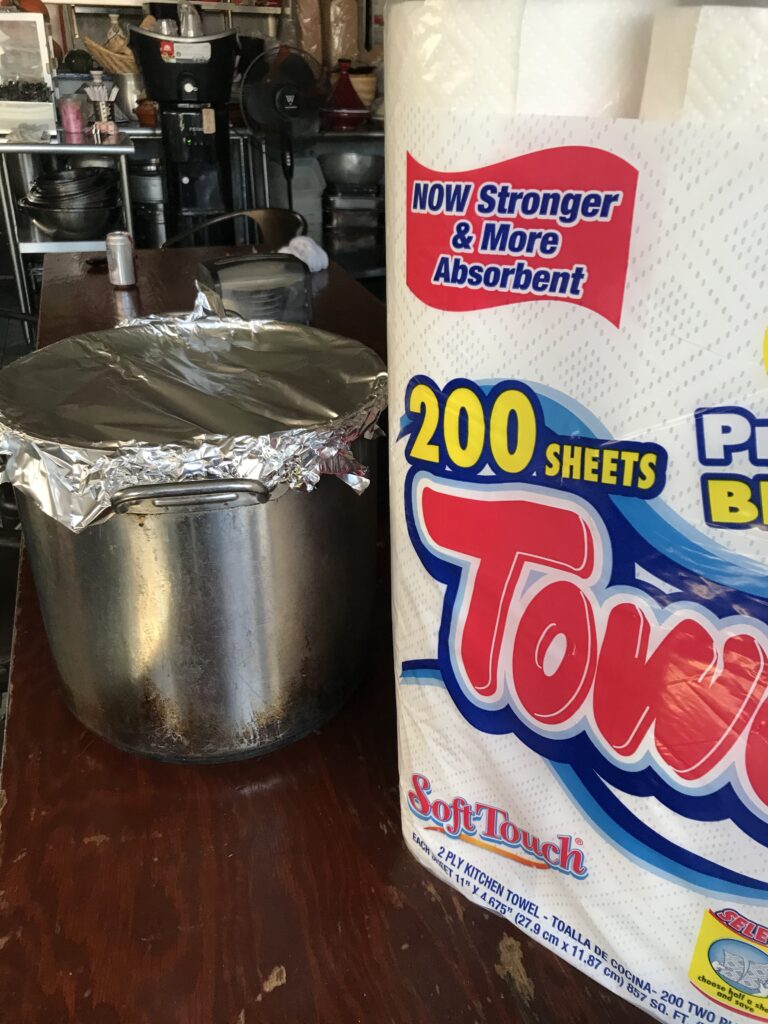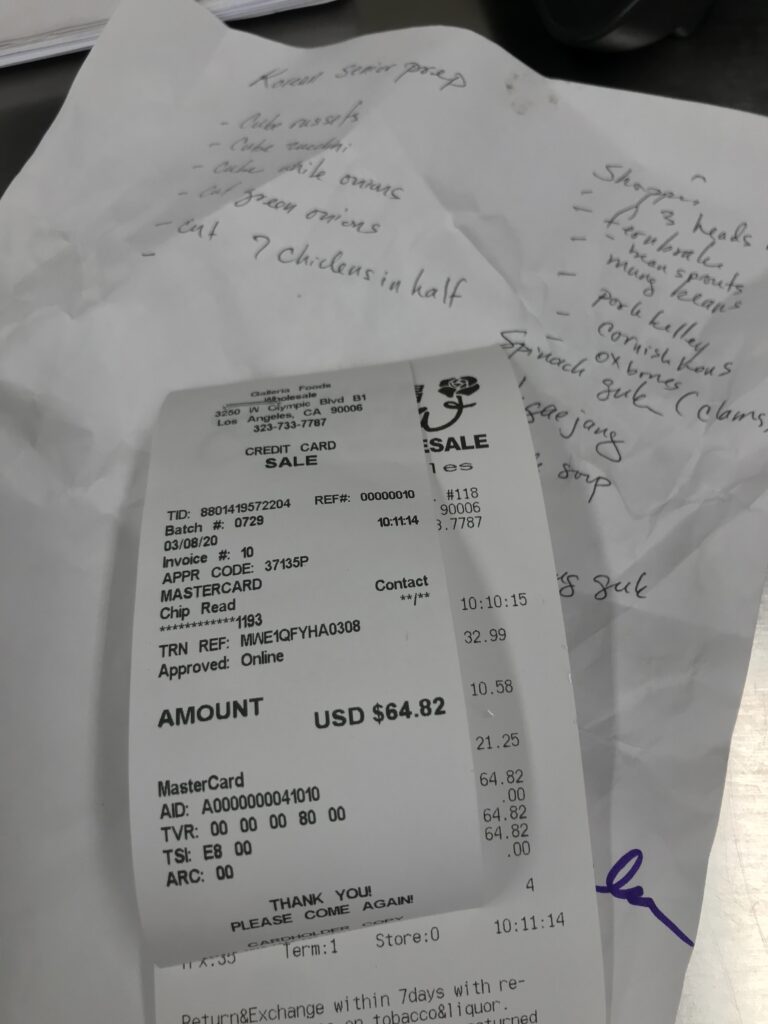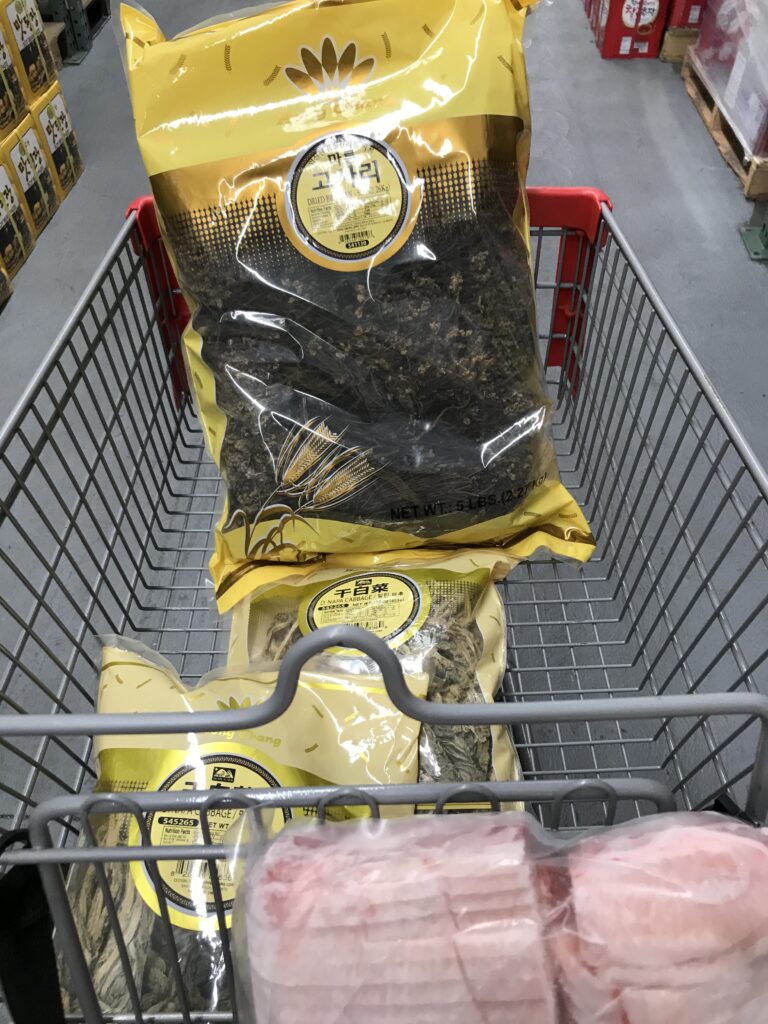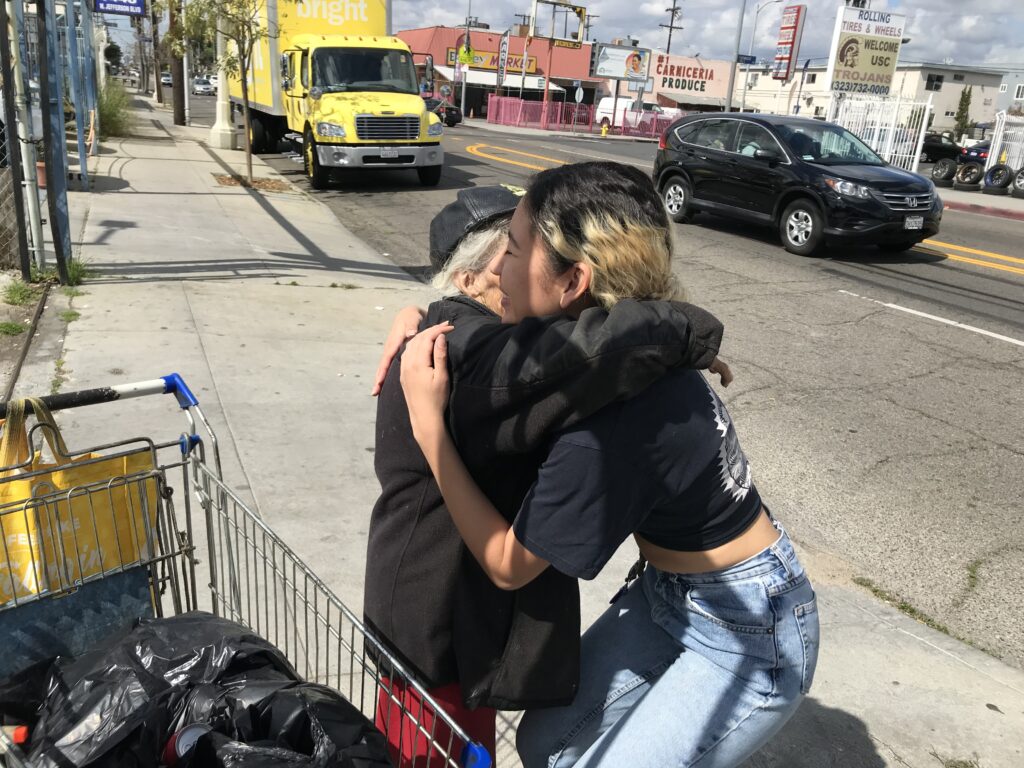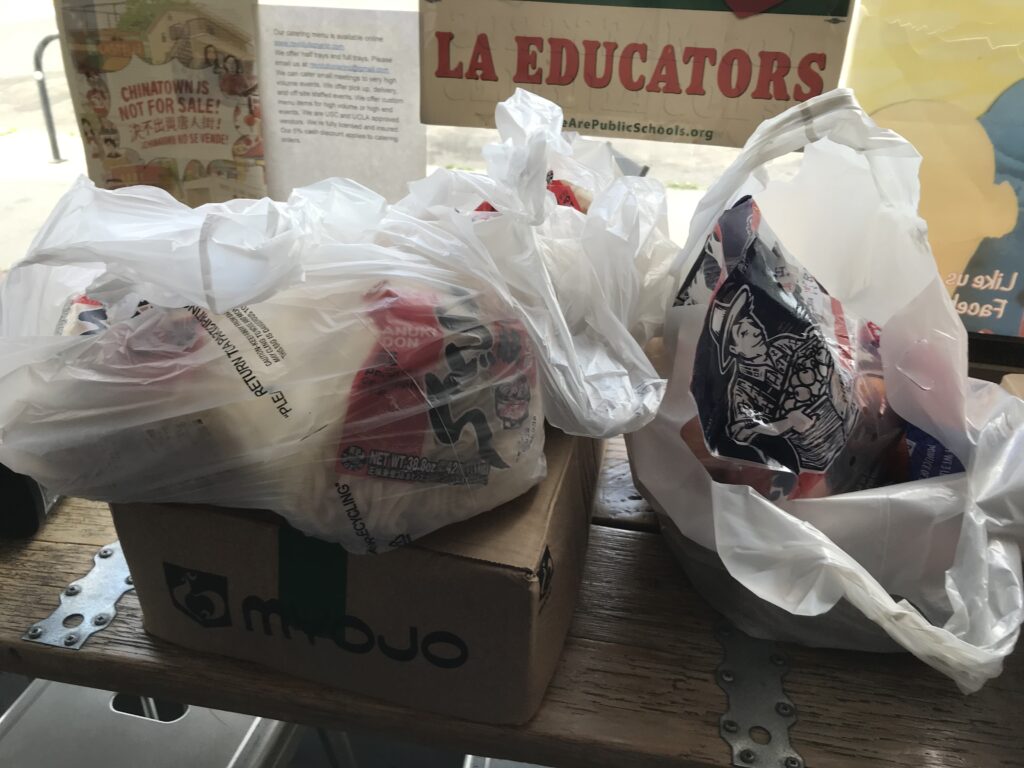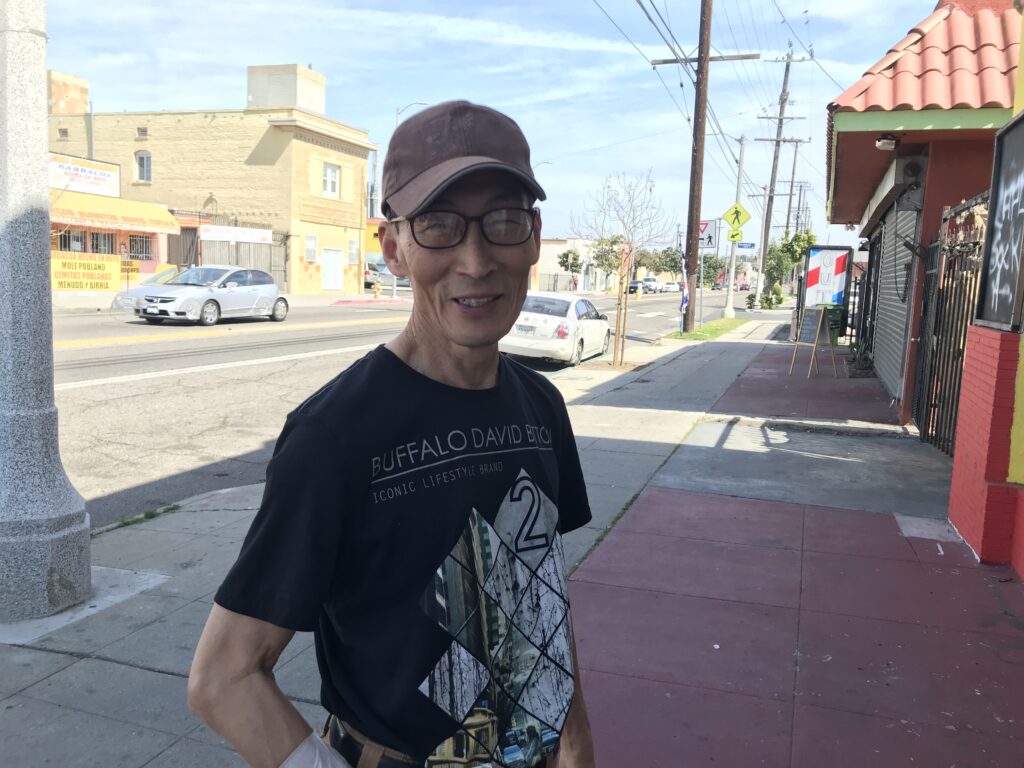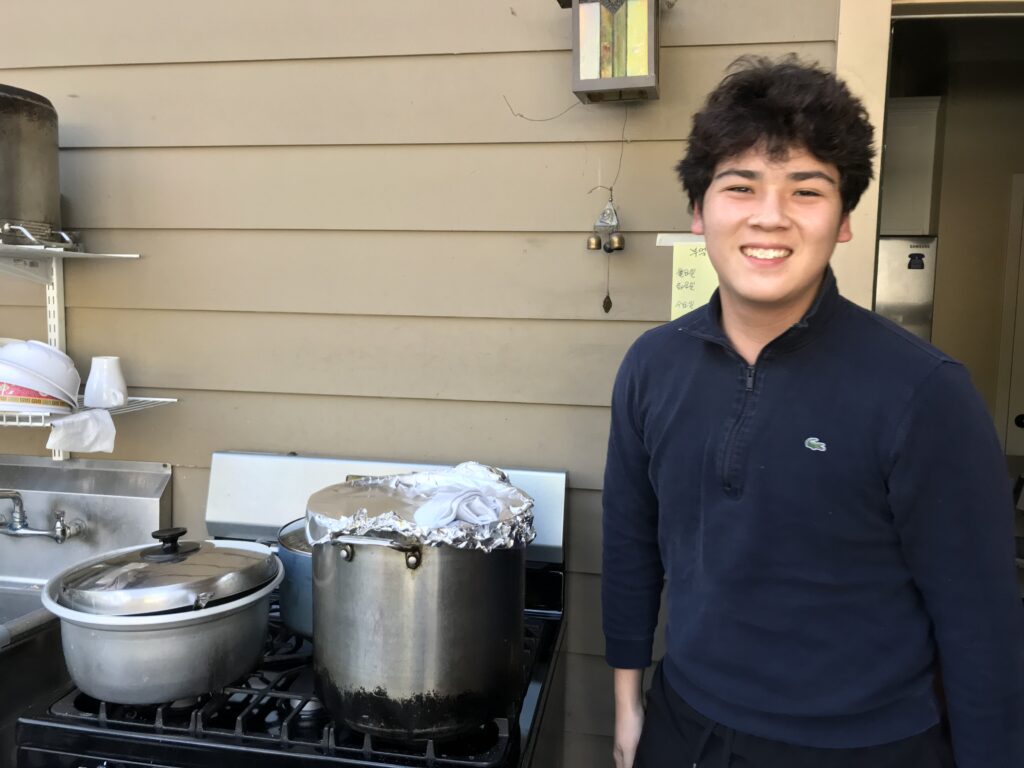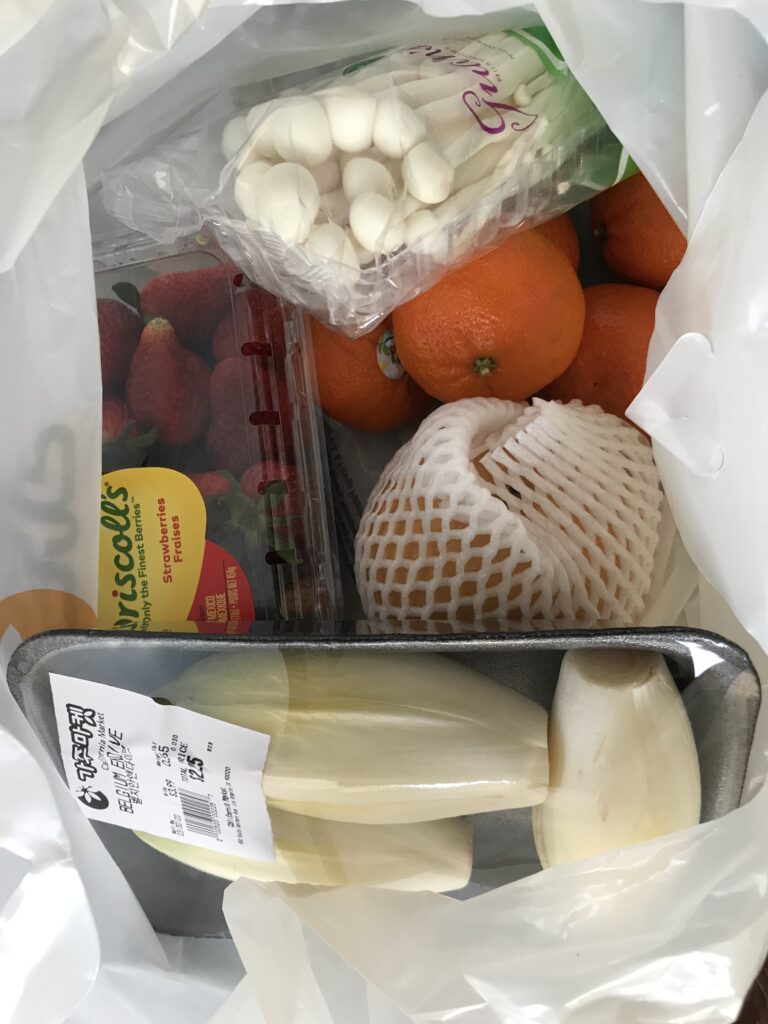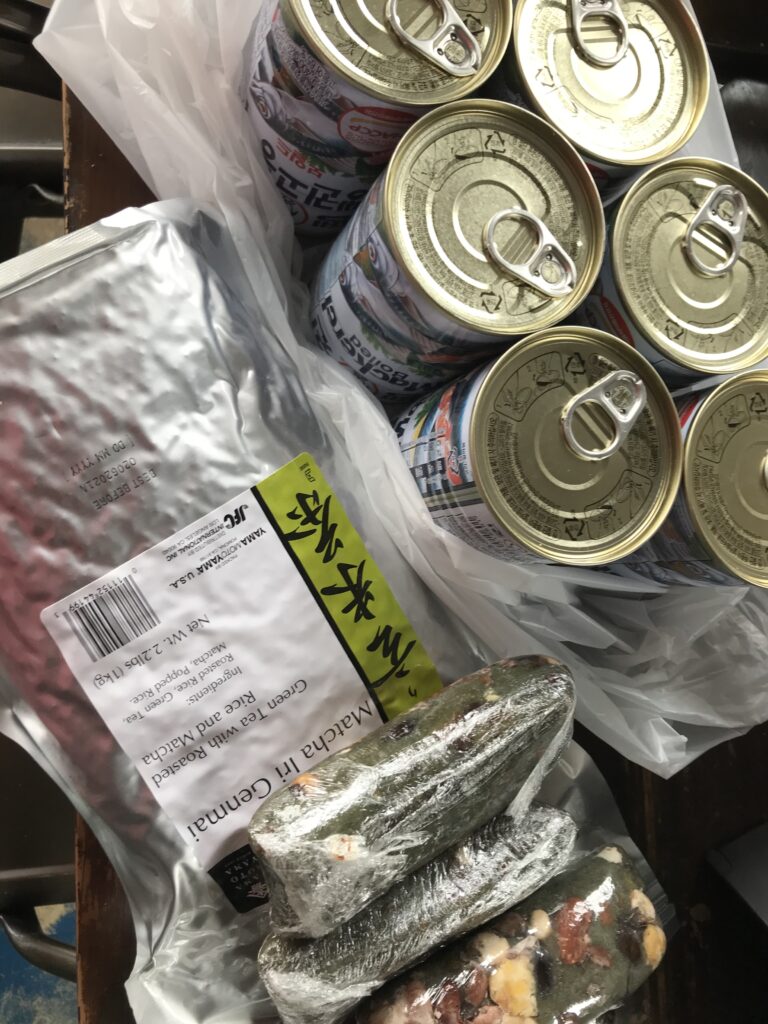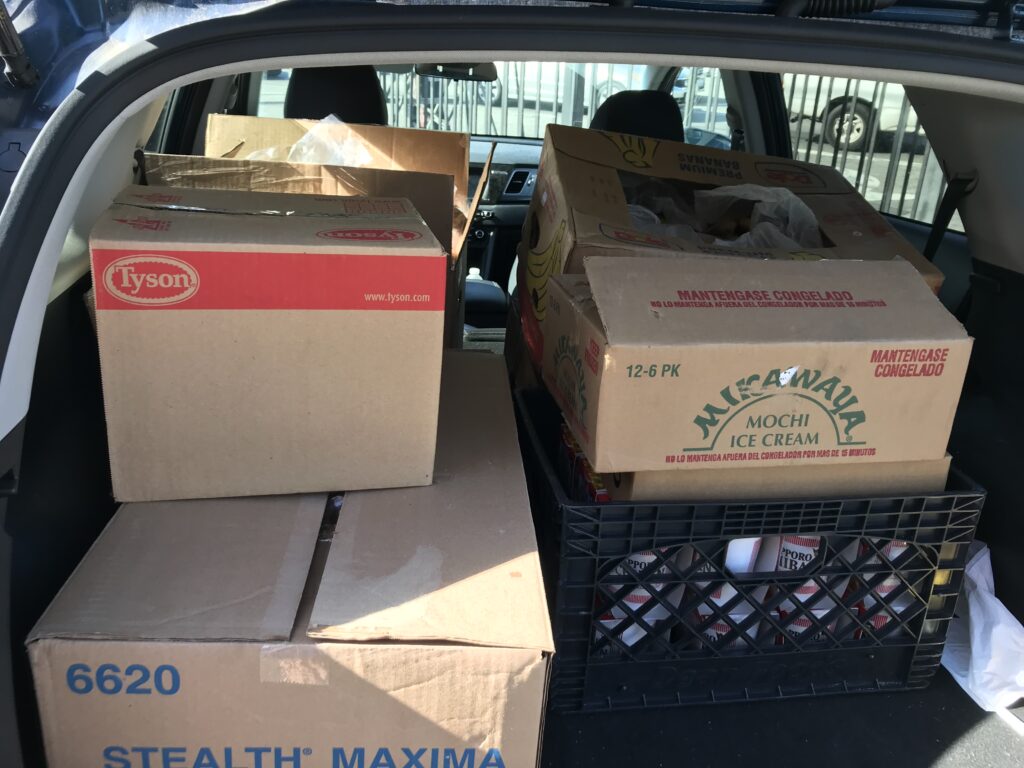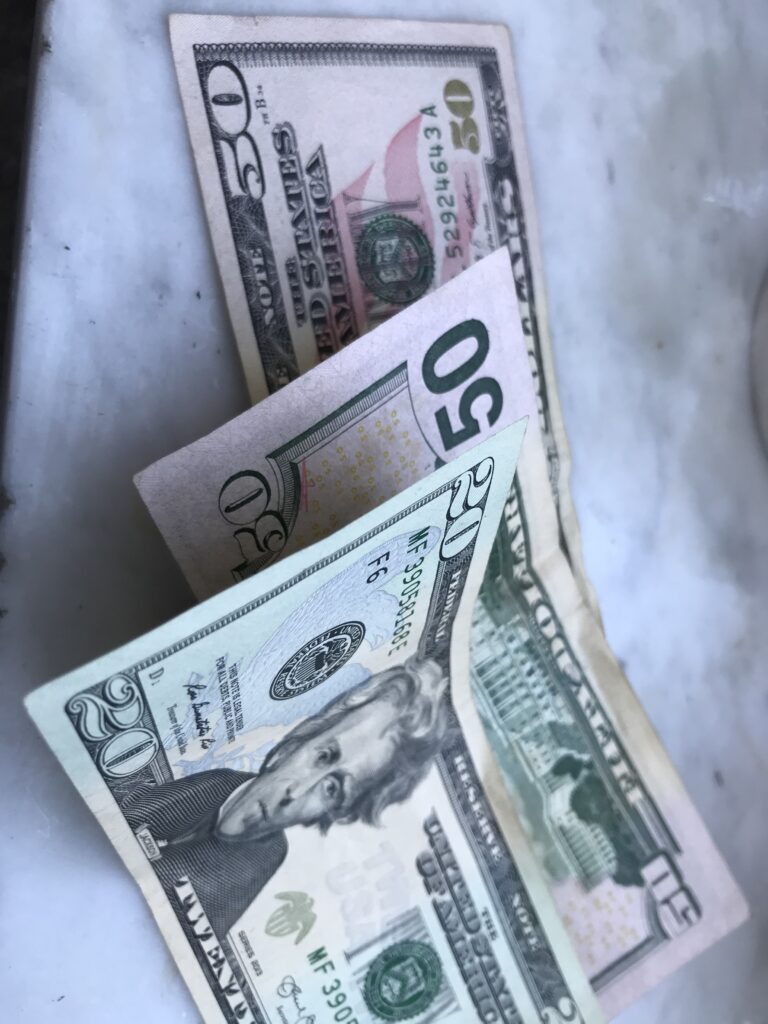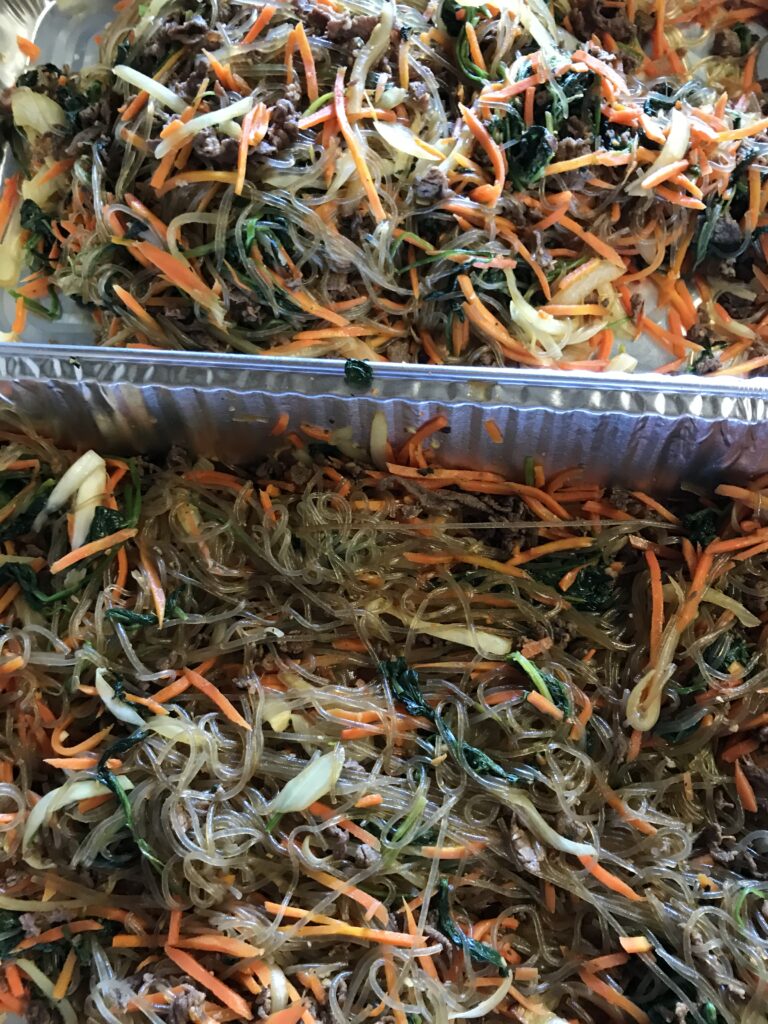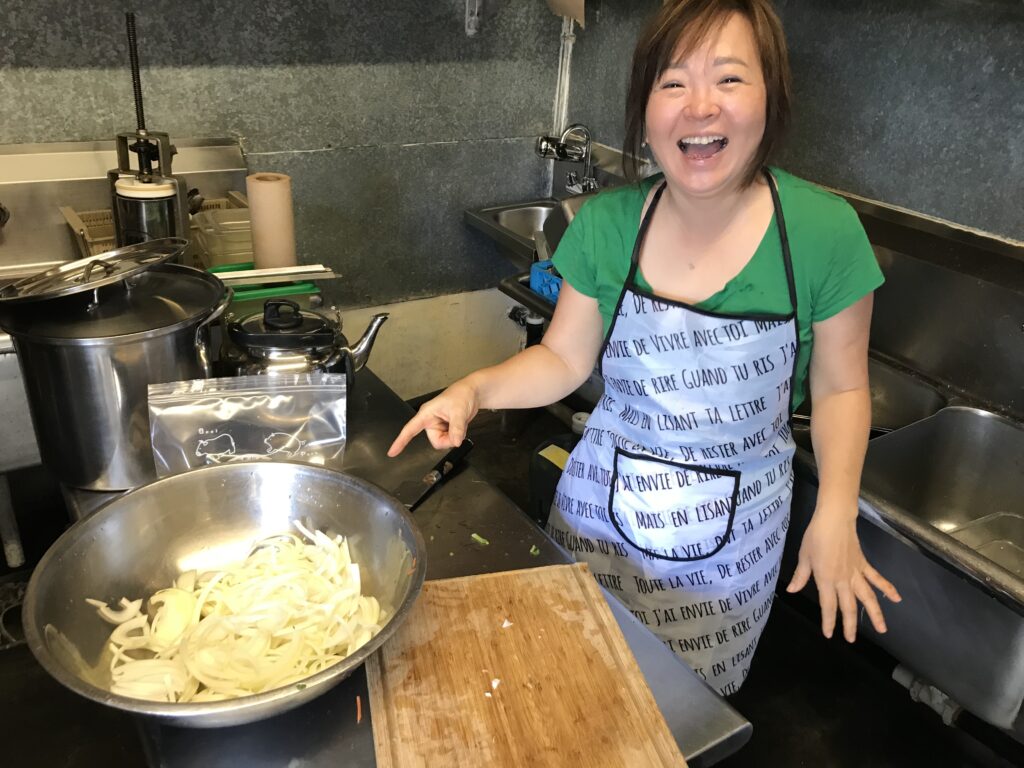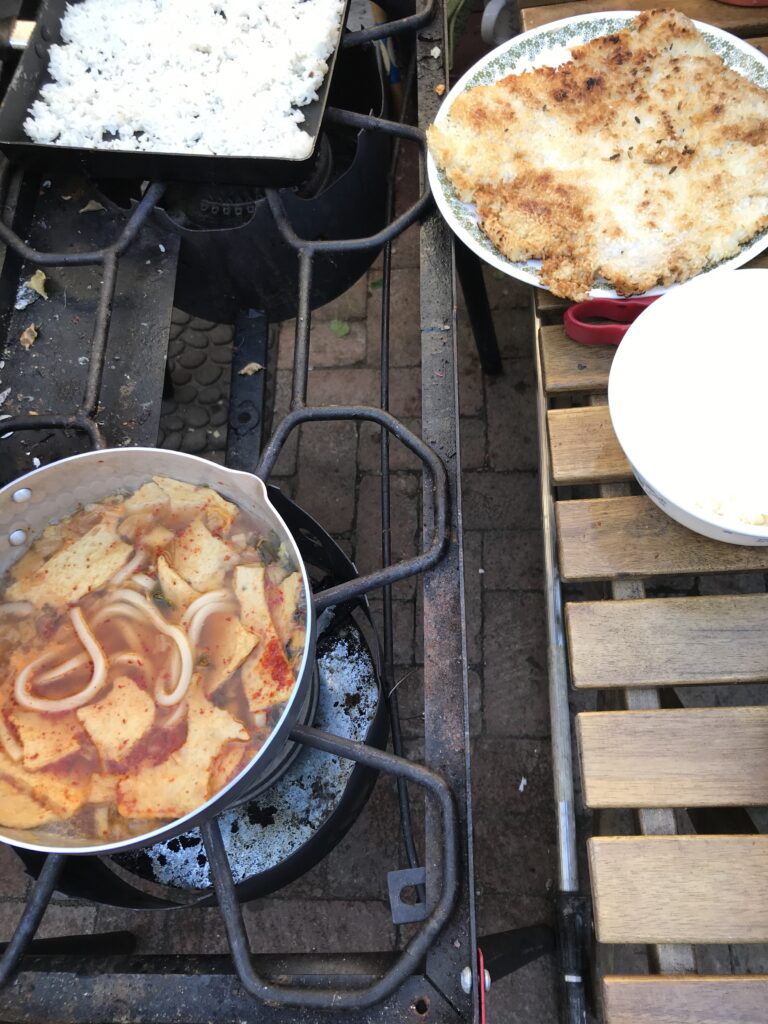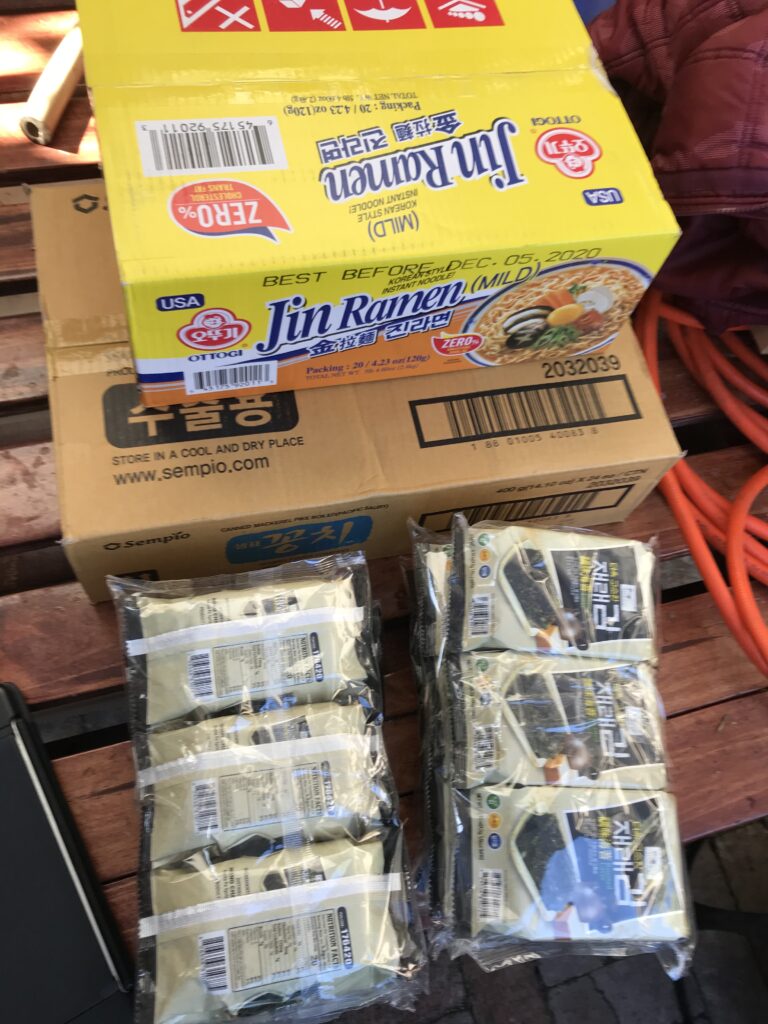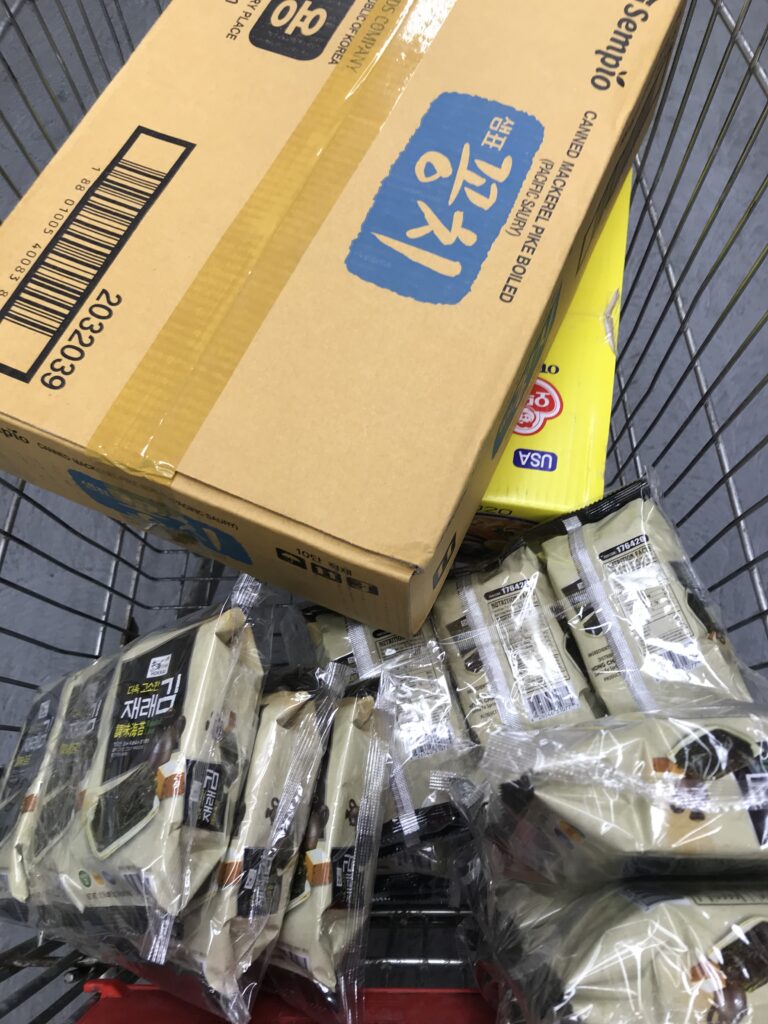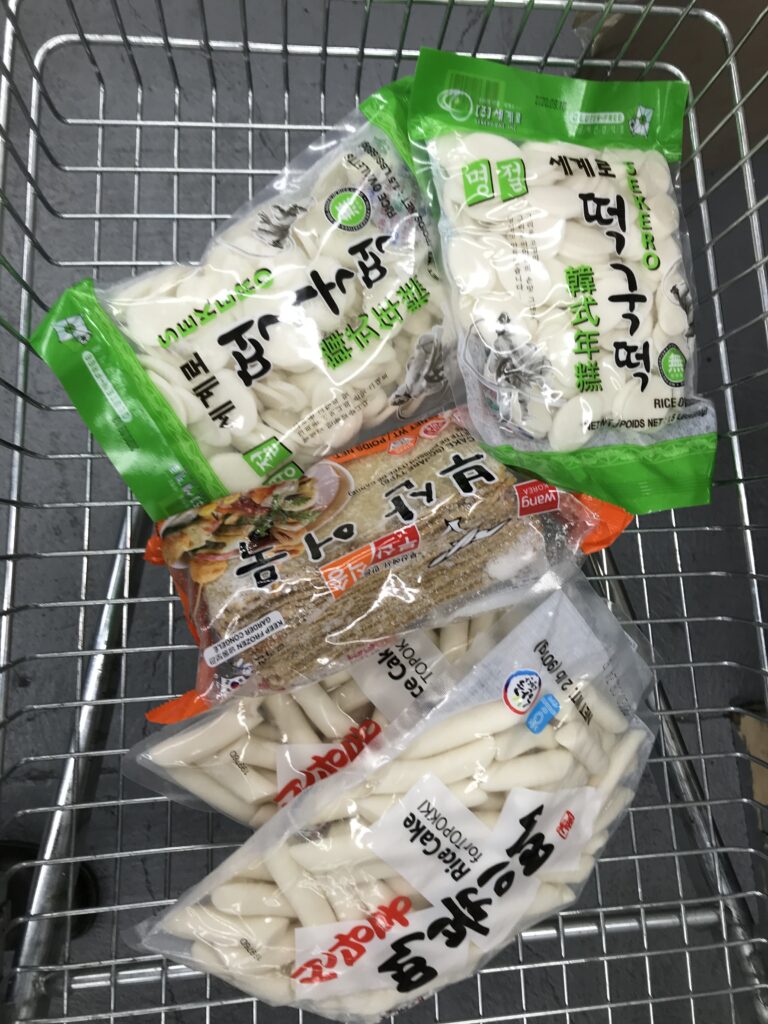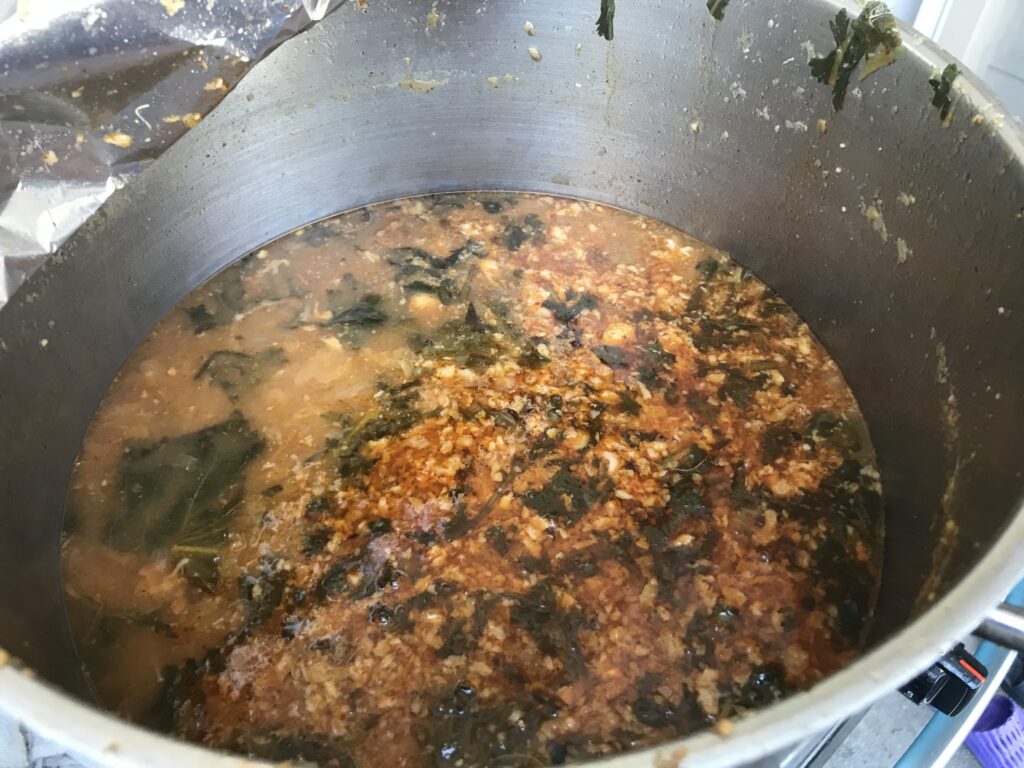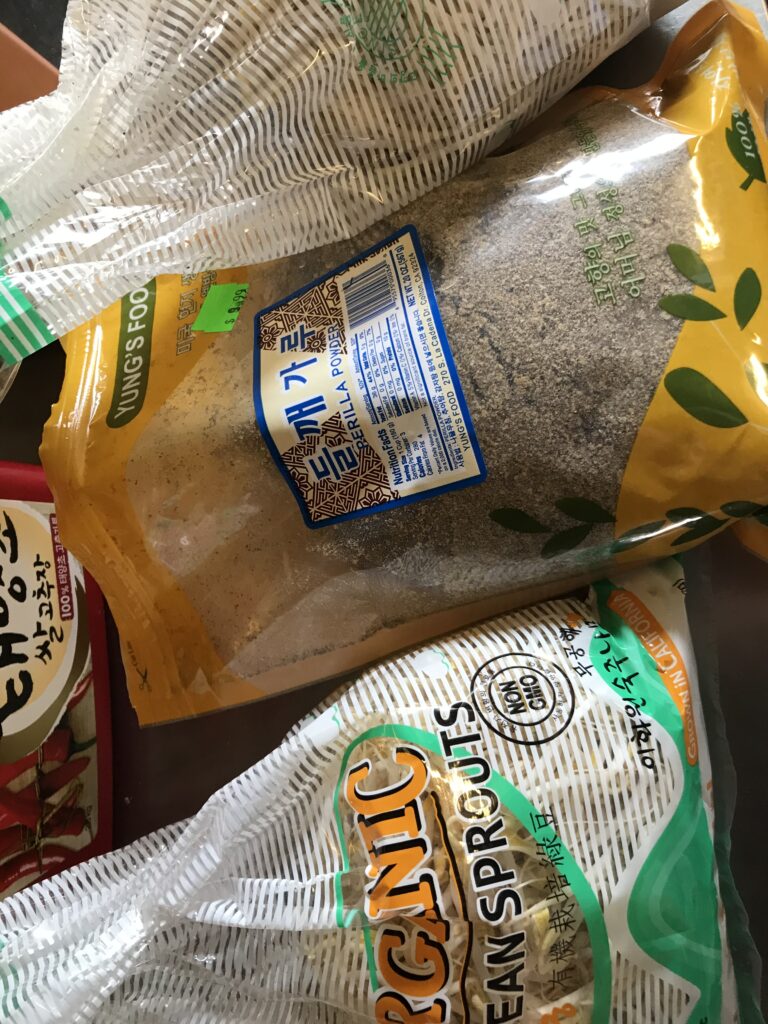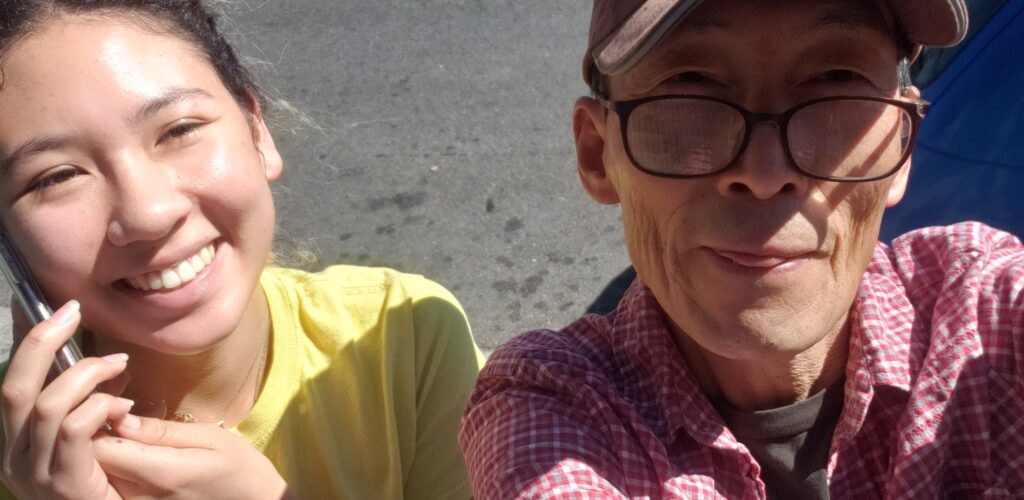Our modus operandi is to start small with outreach and provide immediate, direct aid in the form of material goods, hot food, and easy to cook with ingredients. We assess quickly and provide immediate aid. When there is an urgent need, we are able to provide direct need on the spot, within a few hours, or the next day.
We start small because we know the numbers will grow. We start small because it helps us learn from and fix issues or mistakes early on. We start small to spread calm.
We have found that the vast majority of food insecure people don’t want or need that much food. Most want one or two additional hot meals and a food care package or grocery assistance once a month.
We are a small nonprofit with a very high capacity to purchase food and distribute through our partners.
We are starting to partner with city council offices and field deputies. We work in a supplemental and conciliatory manner. We want to reduce multiple outreach efforts by sharing outreach. We want to assist with culturally competent, in-language support to ensure that the most marginalized Asian Americans and seniors are not erased or invisibilized. Our assistance is also very efficient.
Our Current Initiatives
- Identifying and assisting unhoused/homeless Asians. There has been a major surge in the past 3-5 years as gentrification took root in the lowest income buildings and blocks of Asian American enclaves.
- Rapid Rehousing for Asian Americans
- Our Restaurant Purchase Initiative. We buy hot meals from struggling Asian owned restaurants and distribute the food to low income or no income Asian seniors.
- We expanded beyond Koreatown for our partner distribution network to include Little Tokyo, Chinatown, Thai Town, The San Gabriel Valley, and Orange County.
- We supplement or help start Asian food pantries with our partner organizations. We have the only Asian ingredient specific food bank in LA and Orange County
- We’re growing our partnerships with BIPOC communities. Our first initiative is with South Central LA. The funding for this comes from several sources. We order meals from struggling BIPOC restaurant owners, we make food care packages, and distribute food to low income Black seniors. We’re also starting “Black Child First” an education initiative.
Our Capacity
Current and long term outreach and distribution partners:
- Thai CDC
- API Forward
- Viet-Care
- Southland Integrated Services
- Zerita Jones of LATU Baldwin Hills/Leimert Park/Crenshaw District (South Central LA Initiative)
Future partners:
- Koreatown Youth + Community Center
- Koreatown Popular Assembly
- Homeboys (Boyle Heights and South Central LA)
- 15 NC’s in South Central Los Angeles
- Pacoima Beautiful
Partners That We’re Not Actively Working with on a Week to Week Basis
- Little Tokyo Service Center
- They don’t need our assistance with material resources and their distribution capacity and needs have been met. If they do further outreach and can’t meet the additional need, then we can help.
- Chinatown Community for Equitable Development
- Capacity to distribute is erratic.
